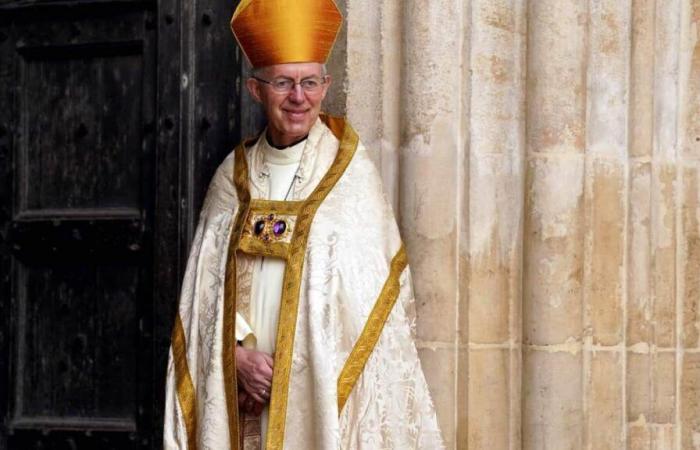The spiritual leader of the Anglicans, Justin Welby, is in turmoil: the Church of England is accused of having covered up a scandal which left more than 130 victims, mainly underage boys, physically and sexually assaulted by a lawyer linked to the religious institution.
Several Anglican religious leaders have been calling for several days for Justin Welby, Archbishop of Canterbury, to resign in the wake of a damning report on the handling of this affair by the Church of England of which he is the head.
If he immediately apologized, it is a hard blow for this 68-year-old man, with a face well known to the British for having officiated at several major royal events in recent years, including the funeral of Queen Elizabeth II or the coronation of King Charles III.
Between the 1970s and the mid-2010s, John Smyth, a lawyer who chaired a charity running holiday camps with the Church of England, was accused of molesting 130 boys and young men in the UK and then in Africa, notably in Zimbabwe and South Africa, where he had settled.
If the top of the Church was officially informed of these facts in 2013, religious leaders had been aware of them since the early 1980s but kept them quiet as part of a “concealment campaign”, concluded a investigation commissioned by the Church, in a report published last Thursday.
John Smyth “is arguably the most prolific serial abuser associated with the Church of England”, states this report, which details the “brutal and horrific” physical, sexual and psychological suffering he inflicted on his victims.
For example, he would bring young boys to his home in the south of England where he would beat them with a cane, sometimes until they bled, citing theological justifications.
The report also concluded that the Archbishop of Canterbury “could and should have” reported the lawyer’s abuse to the police from 2013, when he became primate of the Church of England.
John Smyth died in 2018 in South Africa at the age of 75 without being tried.
The affair only finally came to light after the broadcast of a documentary by Channel 4 in 2017.
Justin Welby assured after the publication of the report that he had “no idea or suspicion” before 2013 but that he admitted having “personally failed to ensure” that after that date “this horrible tragedy would be the subject of vigorous investigation.
“Untenable” position
Despite his apology, three members of the General Synod, the elected body responsible for deciding matters of Church of England doctrine, launched a petition this weekend calling for his resignation. As of Monday, it had collected more than 4,000 signatures.
They denounce the “special responsibility” of the Archbishop of Canterbury and believe that his position “is no longer tenable”.
The Archbishop of Newcastle Helen-Ann Hartley also called for his resignation on Monday, deeming his position “untenable” and adding that the Church “risks completely losing its credibility”.
This is not the first time that the archbishop has been questioned within the institution itself.
Last year, his support for a reform adopted after heated debates to allow the blessing of civil unions and marriages of same-sex couples sparked criticism.
Ordained deacon in 1992 after a lucrative career in oil and finance, Justin Welby has always displayed moderate views on social issues that traditionally divide the Church.
More broadly, this affair once again undermines the Anglican religious institution, already accused four years ago in a previous report of having allowed a “culture” to persist allowing perpetrators of sexual violence against minors to “hide” and escaping justice.
According to this report, part of a wider investigation into various institutions across the country, 390 people linked to the Church of England have been convicted of sexual offenses from the 1940s to 2018.
This summer, the Church had to apologize for its handling of the case of a priest suspected of posing a risk to children, and who was offered a large sum to leave its ranks.
The Church of England is the mother church of the Anglican communion, which has around forty churches in 165 countries and 85 million faithful.






